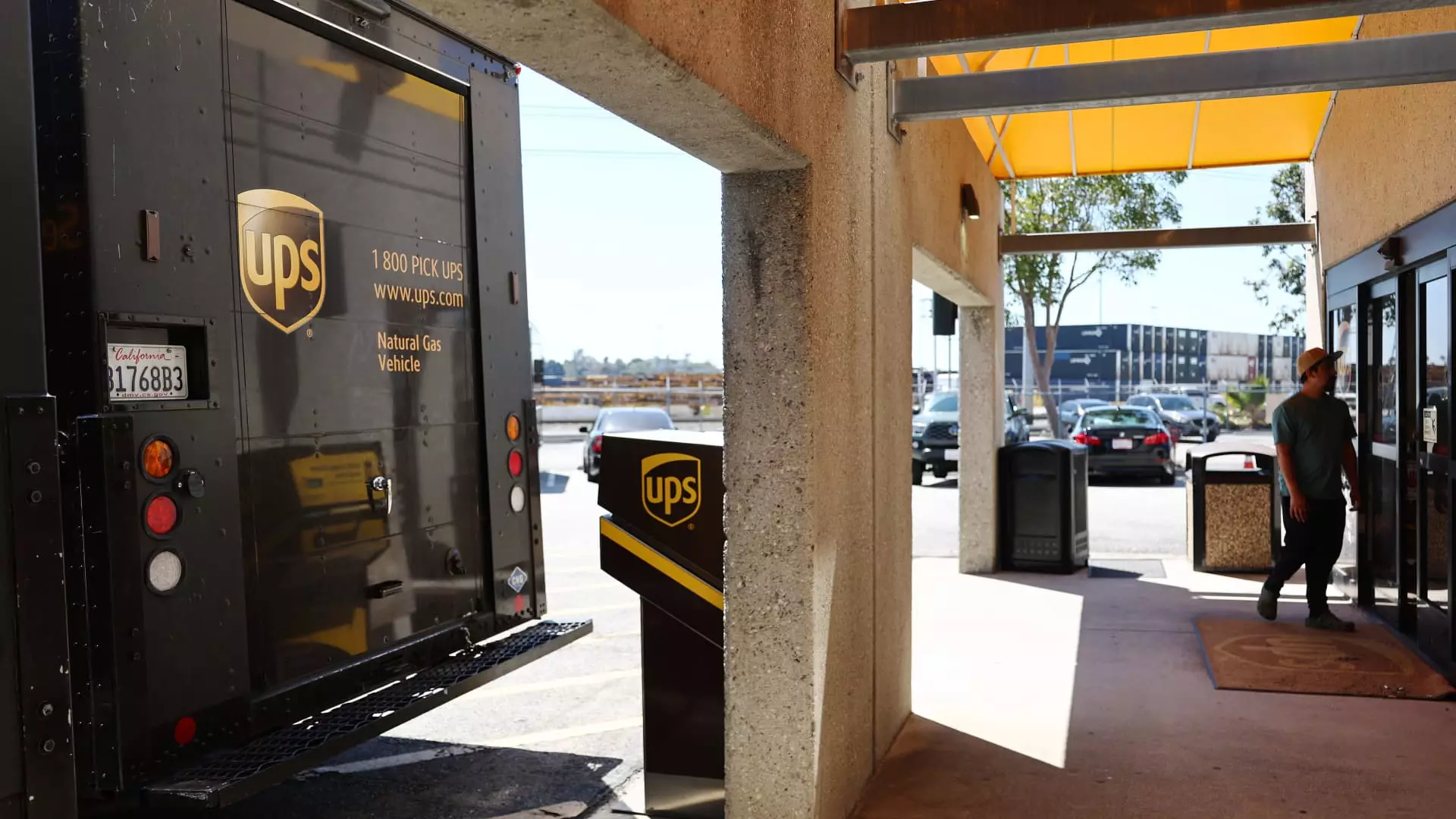United Parcel Service recently reported its second-quarter profit and revenue, which fell below expectations. The company’s revenue guidance for 2024 was also revised downwards to approximately $93 billion, lower than the initial forecast of $94.5 billion. This unexpected outcome resulted in a 7% drop in the company’s shares during premarket trading. Additionally, UPS adjusted its full-year capital expenditures to around $4 billion from the previous estimate of $4.5 billion.
Despite the setbacks, UPS announced plans to target around $500 million in share repurchases in 2024. The company is also in the process of selling its trucking business Coyote Logistics to RXO Logistics, with the transaction expected to close by the end of the year. Furthermore, UPS recently entered into an agreement to acquire Mexican express delivery company Estafeta, signaling its commitment to expanding its international presence.
In the quarter ended June 30, UPS reported earnings per share of $1.79 cents adjusted, falling short of the $1.99 expected by analysts. Revenue for the same period was $21.8 billion, lower than the $22.18 billion anticipated. The company’s net income for the quarter was $1.41 billion, or $1.65 per share, compared to $2.08 billion, or $2.42 per share, in the previous year.
Despite the challenges, UPS CEO Carol Tomé expressed optimism about the company’s future outlook. Tomé highlighted that the quarter marked a significant turning point for UPS as they returned to volume growth in the U.S. after nine quarters of decline. While operating profit declined in the first half of 2024 compared to the previous year, the company aims to return to operating profit growth in the future.
Revenue for UPS dropped to $21.82 billion in the second quarter, down from $22.06 billion a year earlier. The decline was attributed to decreases in both the domestic and international segments of the company. The U.S. operation experienced a 1.9% decrease in revenue due to changes in product mix, while the international segment saw a 1% decline in revenue primarily driven by a decrease in average daily volume.
The shipping sector is currently facing weak freight demand and soft pricing, leading to what some experts describe as a global freight recession. UPS investors were closely monitoring the company’s earnings to gauge improvements in demand. UPS recently secured an air cargo contract with the United States Postal Service, replacing rival FedEx as their primary air cargo provider starting in late September.
UPS’s second-quarter report highlights both challenges and opportunities for the company. While falling short of revenue and profit expectations, UPS is taking proactive steps to streamline its operations, expand internationally, and capitalize on emerging market opportunities. By closely monitoring industry trends and adjusting its strategies accordingly, UPS aims to navigate the current market challenges and achieve long-term success.

Leave a Reply